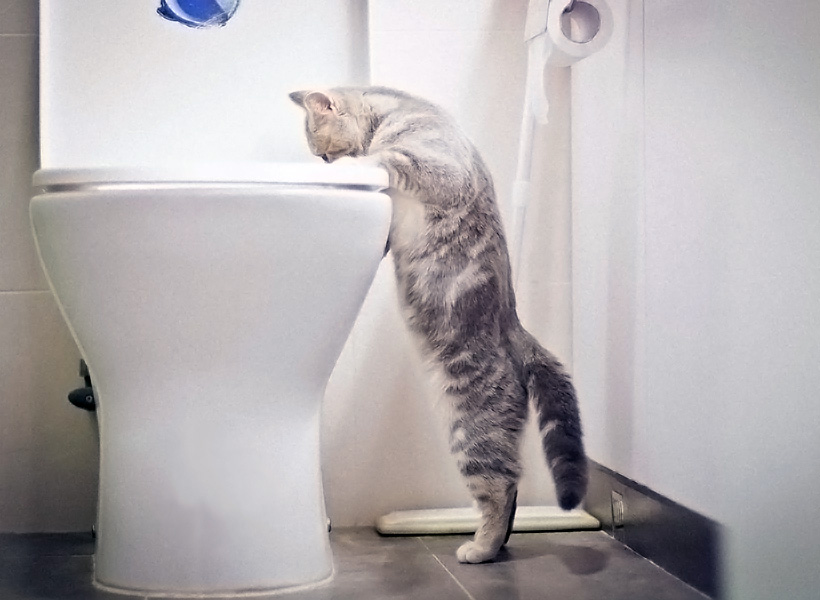Prevent Clogs and Damage: Don't Flush Cat Poop Down Your Toilet - Expert Recommendations
Prevent Clogs and Damage: Don't Flush Cat Poop Down Your Toilet - Expert Recommendations
Blog Article
Each person may have their unique rationale with regards to How to Dispose of Cat Poop and Litter Without Plastic Bags.

Introduction
As pet cat proprietors, it's essential to bear in mind just how we throw away our feline pals' waste. While it might appear practical to flush cat poop down the bathroom, this practice can have damaging repercussions for both the atmosphere and human wellness.
Alternatives to Flushing
Fortunately, there are safer and a lot more liable methods to throw away pet cat poop. Consider the complying with alternatives:
1. Scoop and Dispose in Trash
The most usual approach of throwing away cat poop is to scoop it right into an eco-friendly bag and toss it in the trash. Be sure to make use of a committed trash scoop and get rid of the waste without delay.
2. Use Biodegradable Litter
Choose naturally degradable pet cat litter made from products such as corn or wheat. These clutters are eco-friendly and can be securely thrown away in the garbage.
3. Bury in the Yard
If you have a yard, take into consideration burying feline waste in an assigned area away from vegetable yards and water sources. Make certain to dig deep adequate to avoid contamination of groundwater.
4. Set Up a Pet Waste Disposal System
Invest in a family pet waste disposal system especially created for pet cat waste. These systems make use of enzymes to break down the waste, decreasing smell and environmental influence.
Health and wellness Risks
Along with environmental concerns, purging feline waste can also posture wellness threats to people. Pet cat feces may include Toxoplasma gondii, a bloodsucker that can cause toxoplasmosis-- a possibly serious ailment, particularly for pregnant ladies and individuals with weakened body immune systems.
Environmental Impact
Flushing feline poop introduces unsafe microorganisms and parasites into the supply of water, presenting a substantial danger to aquatic communities. These impurities can adversely impact aquatic life and concession water high quality.
Conclusion
Accountable pet dog possession prolongs beyond offering food and sanctuary-- it additionally includes proper waste management. By refraining from flushing feline poop down the toilet and going with alternative disposal techniques, we can reduce our environmental footprint and secure human health and wellness.
Why You Should Never Flush Cat Poop Down the Toilet
A rose by any other name might smell as sweet, but not all poop is created equal. Toilets, and our sewage systems, are designed for human excrement, not animal waste. It might seem like it couldn’t hurt to toss cat feces into the loo, but it’s not a good idea to flush cat poop in the toilet.
First and foremost, assuming your cat uses a litter box, any waste is going to have litter on it. And even the smallest amount of litter can wreak havoc on plumbing.
Over time, small amounts build up, filling up your septic system. Most litter sold today is clumping; it is made from a type of clay that hardens when it gets wet. Ever tried to scrape old clumps from the bottom of a litter box? You know just how cement-hard it can get!
Now imagine just a small clump of that stuck in your pipes. A simple de-clogger like Drano isn’t going to cut it. And that means it’s going to cost you big time to fix it.
Parasitic Contamination
Believe it or not, your healthy kitty may be harboring a nasty parasite. Only cats excrete Toxoplasma in their feces. Yet it rarely causes serious health issues in the cats that are infected. Most people will be fine too if infected. Only pregnant women and people with compromised immune systems are at risk. (If you’ve ever heard how women who are expecting are excused from litter cleaning duty, Toxoplasma is why.)
But other animals may have a problem if infected with the parasite. And human water treatment systems aren’t designed to handle it. As a result, the systems don’t remove the parasite before discharging wastewater into local waterways. Fish, shellfish, and other marine life — otters in particular — are susceptible to toxoplasma. If exposed, most will end up with brain damage and many will die.
Depending on the species of fish, they may end up on someone’s fish hook and, ultimately on someone’s dinner plate. If that someone has a chronic illness, they’re at risk.
Skip the Toilet Training
We know there are folks out there who like to toilet train their cats. And we give them props, it takes a lot of work. But thanks to the toxoplasma, it’s not a good idea.

I was shown that article about How to Dispose of Cat Poop and Litter Without Plastic Bags from an acquaintance on a different domain. Make sure you take the opportunity to share this entry if you enjoyed reading it. Thanks a lot for your time. Don't hesitate to pay a visit to our website back soon.
Request An Estimate Report this page